Of Homefinding, Reinvention, and the Mandela Effect
The older we get, the more we crave the comfort and stability of familiarity. What happens when we intentionally fight those urges to start fresh some place new?
Quick note: Substack has warned me that this post is too long for email, most likely because of all the photos I stuck in. I suggest you give it a read in your browser instead.
It’s been a long couple of months.
I don’t know when, exactly, we decided that we had to cash in on the ultra-hot real estate market in Phoenix and sell our suddenly much more valuable house, but it was probably some time in July. We’d been talking about it for almost a year — well before appreciation hit the double digits. The final decision came around the same time I decided to hand over the 7-year old publication I had founded. It had been my full time job, my means of provision, and in many ways, consumed my life. It was, therefore, also the source of the majority of my stress, and it was having a profoundly negative effect on my health and mental state, and it had other deleterious effects on the people who have to live with me. (I’ve often been referred to as an “ogre” by my family, and it’s hard to disagree with the comparison.)
My wife and I, having gone through a low point in both work and our marriage, managed to have come out the other side alive and happier, but decidedly exhausted. And inasmuch as our lives and home felt burdened by the baggage of our ordeals, we knew we wanted a fresh start. To get away from the bad memories that had taken root in the place we’d been living, and the barrenness of the desert with its accompanying soul-scorching heat. We had come back to Arizona in 2016 for several things: good charter schools, friends, a functional parish, and to take care of her rapidly-deteriorating father, now approaching 90 years of age. But COVID had given us cause to pull our kids out of school and its attendant masking requirements, some of our good friends had moved away (and the others we only rarely saw, because our lives were all so busy). Our parish, under its current, problematic leadership, had become a hostile place; one where it was clear we were no longer welcome. And my father in law had at last been forced to acquiesce to live with us full time, making it possible to liquidate his remaining properties and bring him with us wherever we decided to go.
Our house, which was, at the time we bought it, the only one available in our area that could fit us and our needs, is designed more for entertaining and cocktail parties, not raising a gaggle of kids and homeschooling. There’s little storage, almost no yard, and no real place for the kids to play. With with them home from school 24/7/365, they wound up in front of screens all the time when they weren’t climbing the walls.
We needed to go back to the woods.
In short, though there are things we appreciate about Phoenix, which is in many respects a very fun and vibrant city, it was never where we wanted or intended to settle down long-term. With our reasons for being there dissolving, and a fire under our rear ends for change, we knew it was time to go. We procrastinated for months, because moving for us is, without exaggeration, a rather massive production. When the market reached fever pitch, though, we finally decided we couldn’t put it off any longer, and put things in motion. After all, if someone hands you a winning lottery ticket, you’d be a sucker not to take it.
So as soon as my business was safely in the hands of new owners and I was freed of my daily work obligations, we switched all of our efforts to getting the house ready to sell. Getting rid of needless stuff, selling off bulky furniture, packing up everything we could and getting it into storage, then managing all the repairs and updates we could afford. Our house, built in the 1990s, was never well-taken care of by the original owner, and we had spent the past couple of years repairing long-neglected things that could no longer wait. But this summer, that went into overdrive. We painted the house inside and out, had all the landscaping torn out and re-done, polished the tile floors, replaced all the light fixtures and ceiling fans and battered appliances, replaced the old carpets, re-faced all the cabinets, had everything cleaned and power-washed and sealed, and gave the place a big (and expensive) facelift. As I watched our savings dwindle, I hoped beyond hope that we’d really be able to sell it for a premium so we could make it all back.
While all of this was happening, we moved out. We had to. The house wasn’t livable with so much work being done inside. Since the second week of August, we’ve been vagabonds, bouncing from one Airbnb to another. First, we stayed in the vicinity of our home.
We had planned a short getaway at Great Wolf Lodge around the time we thought we’d be done with the house, so we could spend some much-needed time with the kids, who had barely seen us in all the chaos of the preceding weeks. As tends to happen, though, things went wrong, or got delayed, and what was supposed to be a couple of days of vacation turned into the kids having a lot of fun mostly without us, as we spent most of our time either on the phone or driving back over to the house to manage this or that contractor.
Once the bugs were ironed out, and our home was finally ready, we put it on the market, and got out of the way. It’s tough to keep 10 people neat and tidy enough to make showings easy — or the new paint from getting dirty — so we started our adventure.
We began a slow migration across the United States, heading North and East, stopping at various points of interest along the way— Utah, Colorado, South Dakota, Chicago, New York… until we finally landed in New England.

As I write this, I’m sitting in a cabin just outside of Bangor. From here, we’ll hit Acadia National Park and go up to Bar Harbor for some whale watching, before we begin the long return home to pack the rest of our stuff into a trailer and come back this way to stay.
We’re moving to New Hampshire, where we’ve found a new home.
A Fresh Start
So why New England? We’ve spent the past 19 years alternating between living in two regions: the Arizona desert, and Northern Virginia just outside of Washington DC. There are things we’ve loved about both, and things we’ve hated. Ultimately, neither place ever truly felt like home. Not for my wife, who grew up in Arizona, and not for me, who grew up in Connecticut and New York.
When the decision came that we wanted to start over some place new, as we sat sweltering in the 115 degree Phoenix heat, the cool summer nights of my New England childhood with a box fan in the open window presented themselves to my imagination as increasingly appealing. So, too, did the memories of climbing trees, riding bikes, and spending our whole days outside when we weren’t in school — something that neither the scorching Arizona summers nor the hot, stuffy Virginia humidity have made appealing for our kids. Or for us, for that matter.
As we have every time we’ve lived in Arizona, we found that we missed the seasons. The riot of colors in the fall, the early snows of winter, and the hopeful blossoming of spring. The fertility and richness of summers not spent hiding from the sun. And even more than the aesthetics of these things, they provide a sense of a natural rhythm to life, and the passage of time — as opposed to the endless sameness of the desert landscape, which can make one feel as though he has been forgotten by time. We were drawn, too, to the roadside fruit stands. The history and culture that can only be found in the Northeast. And maybe, most of all, to the soothing sights, sounds, and smells of the coast, which to my wife and I are as close to magic as exists in this world.
As for New Hampshire, well, it’s the “Live Free or Die” state. A motto that speaks to our hearts. It’s one of the last places on the East Coast where people live and let let live. And though it’s rural, it offers easy access to both Boston and the coast.
We’ve been here in New England for over a week now, and it’s been as glorious as I remember. We haven’t seen the thermometer creep above 81 degrees even on the sunniest day. The nights are chilly enough this time of year that if you have the window open, you have to reach for a blanket. And everything is so lush and green that it feels like a different world. Our back yard for the past few years has looked more like an alien landscape — starkly beautiful, but unfamiliar and hostile — and if you note an unusual amount of green in the photo below, that’s only because it was taken right after we had record rainfall for a couple of weeks - the first such rain in 2 years:
When I sat down to start this piece, it was from a rental in York, Maine, where the view was decidedly different:
The ocean here is a a deep blue, almost sapphire, that I’ve never seen. The coast is rugged and majestic, studded with rocks and decorated with lighthouses. We could see two from the rooftop deck of our rental.
It’s beautiful, and bracing. The sights, the smells, the sheer difference of it all. For the first time since before COVID started, my kids aren’t spending excessive amounts playing video games or watching TV. Instead they’re playing and running and climbing, visiting parts of the country that they’ve never seen.
At dinner last night, as we sat down around the big farm table to dig into a bowl of my wife’s homemade beef stew, I asked the kids how they felt about moving up here. They all said they liked it better, even if they had concerns about leaving friends behind. The difference in climate was a big plus for all of them. Every single one of us is sick of the constant heat. The boys said they’d be willing to shovel all the snow New Hampshire throws at us if they could just have some snow again. And they all love the cooler summer. Even our oldest daughter, who was not enthusiastic about leaving her high school two years early (she was the only one not being homeschooled) conceded she’d rather live in this part of the country.
So away we go.
The house buying process is flying by, and it means that we’ll be moving here permanently within a month. That’s a crazy feeling. This all happened so fast. And though we love it here, it’s all so unfamiliar. It’s weird how dependent we become on the things that bring us comfort. The usual grocery store. The favorite breakfast spot. The streets you drive without thinking, never needing a GPS to know how to get from point A to point B.
Simultaneously, traveling — something that I used to take such delight in — is wearying. The advent of Airbnbs is the only reason it’s even possible to travel with a family our size, since hotels don’t make accommodations for us without having to pay for multiple suites. Renting a house or cabin that sleeps 8 or 10 and has a fully functioning kitchen means we can cook meals at “home,” saving us money, but there, again, is the unfamiliarity. Someone else’s kitchen. Someone else’s pots and pans and utensils and spices. If we go to the grocery store to grab something, it’s not Fry’s but Hannaford’s or Market Basket. It feels very similar, like most American supermarkets do, but not quite. And all that almost but not quite familiarity along with the rather unusual spontaneity of our move has created a sense of surreality that at certain moments has been almost overwhelming.
Have you subscribed to The Skojec File yet? It’s only $5 a month, gets you access to our community and exclusive subscriber content. Most importantly, it’s how I support my family and keep providing quality content for you to enjoy!
If you like, you can offer additional support for my work via Paypal or Patreon.
The Mandela Effect
There’s a concept known as the “Mandela Effect” (a fascinating 2019 film by the same name illustrates it disturbingly well) and it’s described as follows at The Conversation:
Have you ever been convinced that something is a particular way only to discover you’ve remembered it all wrong? If so, it sounds like you’ve experienced the phenomenon known as the Mandela Effect.
This form of collective misremembering of common events or details first emerged in 2010, when countless people on the internet falsely remembered Nelson Mandela was dead. It was widely believed he had died in prison during the 1980s. In reality, Mandela was actually freed in 1990 and passed away in 2013 – despite some people’s claims they remember clips of his funeral on TV.
Paranormal consultant Fiona Broome coined the term “Mandela Effect” to explain this collective misremembering, and then other examples started popping up all over the internet. For instance, it was wrongly recalled that C-3PO from Star Wars was gold, actually one of his legs is silver. Likewise, people often wrongly believe that the Queen in Snow White says, “Mirror, mirror on the wall”. The correct phrase is “magic mirror on the wall”.
Good Housekeeping has a gallery of examples that many will identify with, from Loony Tunes being spelled “Loony Toons” to “Jiffy” Peanut butter (not Jif) to Curious George having a tail to the number of people who remember The Berenstain Bears being spelled “Berenstein” — which never actually happened.
More from The Conversation:
Broome explains the Mandela Effect via pseudoscientific theories. She claims that differences arise from movement between parallel realities (the multiverse). This is based on the theory that within each universe alternative versions of events and objects exist.
[…]
Psychologists explain the Mandela Effect via memory and social effects – particularly false memory. This involves mistakenly recalling events or experiences that have not occurred, or distortion of existing memories. The unconscious manufacture of fabricated or misinterpreted memories is called confabulation. In everyday life confabulation is relatively common.
What we’re dealing with right now isn’t really the Mandela Effect, but it’s reminiscent. It’s not false memory, but subtle differences that add up to a sense that something is wrong, even though nothing obviously is. It could be as simple as the fact that we’re used to the green trees and grassy fields of Virginia, but that the trees in Maine are of different varieties, and the climate is different. So something that looks almost the same is actually not, and the brain hits that not-quite-realization at certain moments like catching an unexpected speed bump at 50 miles an hour. It really is an alternate universe sort of feeling.
We don’t belong here yet, but neither do we belong where we came from. Our old house, not yet sold but emptied of our things, re-painted, and filled with someone else’s furniture for staging purposes, is also unfamiliar and unwelcoming now. We can’t go to the new house yet, but we can’t go back home, either. There is a profound sense that we don’t belong anywhere, and only the fact that we’re here together gives us the comfort of the known. We have tried to return to some of our habits — a show we were watching together before we left, a video game where we’d built a village together — and it almost works, but not quite.
Normalizing Takes Time; Reinvention Takes Longer
While we’re excited by our move to a place that’s beautiful and offers so much that we love, adapting in a way that these moments of surreality stop sneaking up on us will take time. Soon, the new roads will become familiar, and we’ll drive them without thinking. Before long, we’ll write the correct zip code, or not feel weird saying the name of our grocery store. Bit by bit, we’ll adapt, and things will be less strange.
I think I’m acutely aware of just how unusual it is for a couple in their forties with so many kids, and the added burden of an elderly-care obligation, to uproot and start over somewhere new. What felt easy as a young man feels very unsettling now, especially since our move is completely voluntary. It’s so much easier to say, “Well, I have to do this because of my job” or “I need to be closer to family” or any other reason that causes the person you’re explaining your decision to to nod knowingly and say they understand.
It’s weird as hell to say, “You know what, we’re not even 100% sure this is the right move, but we think we like it better, and we’re ready for something different, so we’re taking a leap of faith.” It sounds insane when I try to explain it, which makes me wonder if maybe it is.
Back in August, Brian Clark talked in his Further newsletter about the steps necessary to make a big life change, especially at midlife, with a focus on three aspects — separation, liminality, and reintegration:
1. Separation: In order to change, you need to adopt a new identity. And that means finding a way to disassociate from the old you, which requires separation. It takes ‘habit discontinuity,” which happens when we’re separated from the people and places that trigger old habits and old selves. Those who moved somewhere new during the pandemic, for example, have a better chance of making life changes that stick.
2. Liminality: Liminal means “at or on both sides of a threshold.” And an interlude is essentially a break or intermission. So “liminal interludes” give us the ability to do new and different things with new and different people. From that we learn about ourselves and cultivate new knowledge, skills, resources, and relationships. Then we apply what we’ve experienced into a new career path.
3. Reintegration: No, this is not the title of The Cure’s final album. At some point, you’ve got to throw yourself back into the world of work in your new role, while not making the same mistakes. The typical pattern after we receive some sort of wake-up call is simply to revert back to form once things return to “normal.” To truly experience a “new normal,” you’ve got to continue to avoid the old cues and triggers that you separated from initially.
Although I read this at the time it first came out, and I think it was in the back of my mind, I didn’t realize how close it was to what we’re going through. I went back to it today and read it again, and was really struck by it. I realize now that I’m neck deep in the first two of these steps. I got rid of my business, created separation between what I did before and what I was going to do next, found a totally new place to live that requires the development of new habits and new friendships, took a break to take this trip in between, and am now facing the challenge of reintegration.
And I’ll be honest with you: I’m scared as hell about that last part.
My life used to be endlessly bound up with the politics, beliefs, and turf wars of Catholicism. I’m 43, and I’ve thought of little else of significance since I was 15. And now, the more distance I get from that, the more I am forced to work through the bitterness and resentment I feel about having given the best years of my life to an institution I can’t help but see as irretrievably corrupt and manipulative, the more I lie awake at night trying to understand what I really believe about God and how to separate that from the indoctrination that shaped me, the more lost I feel.
There was one topic — and only one — that I knew a lot about, and that was Catholicism. I was so immersed in that world that the business I built in service of those beliefs was an overnight success, despite being my first attempt at entrepreneurship.
But I’m not sure I know how to do anything else.
So here I am now, lost, wounded, and wandering, feeling, for the time being, homeless both spiritually and literally, hoping that I can find a way to continue using my gifts for writing, speaking, and storytelling to build something new.
And I honestly don’t know yet what that might look like.
It occurred to me last night that the reason certain traditionalist Catholic media figures have become so popular is because they will never admit to their audiences that they don’t have the answers. They aren’t in the habit of saying, “I just don’t know what we’re supposed to do in this situation, or what to believe about how we’ve come to this point.” They’d much rather sell you a prophetic interpretation or masonic/satanic conspiracy or devotional habit or book they wrote about all of the above than say, “Sorry guys, but we’re all gonna just have to deal with being lost together.”
There isn’t a huge market for uncertainty and doubt, but there’s endless demand for pandering. We all like to have our confirmation bias stroked.
The process of reinvention is a messy one. It’s stumbling through the dark in an unfamiliar room, trying not to bang your shins on the furniture. (Or in the case of the current Airbnb I’m in, it’s taking a shower in a bathroom with a motion detector light, only to have it go out on you half way through, leaving you in pitch blackness because you’re hidden behind the curtain, flailing your arms in hope you’ll be seen by the sensor before you slip and fall.)
Our move will require two more cross-country trips, a closing, a move-in, and more. I’ve found that writing from the road is pretty challenging, what with most of the spaces being very small, and filled with stir-crazy kids. My dispatches from reinventionland will likely continue to be somewhat sporadic for a bit, so I hope you’ll stick with me until I can get established again.
Until then, thanks for reading.










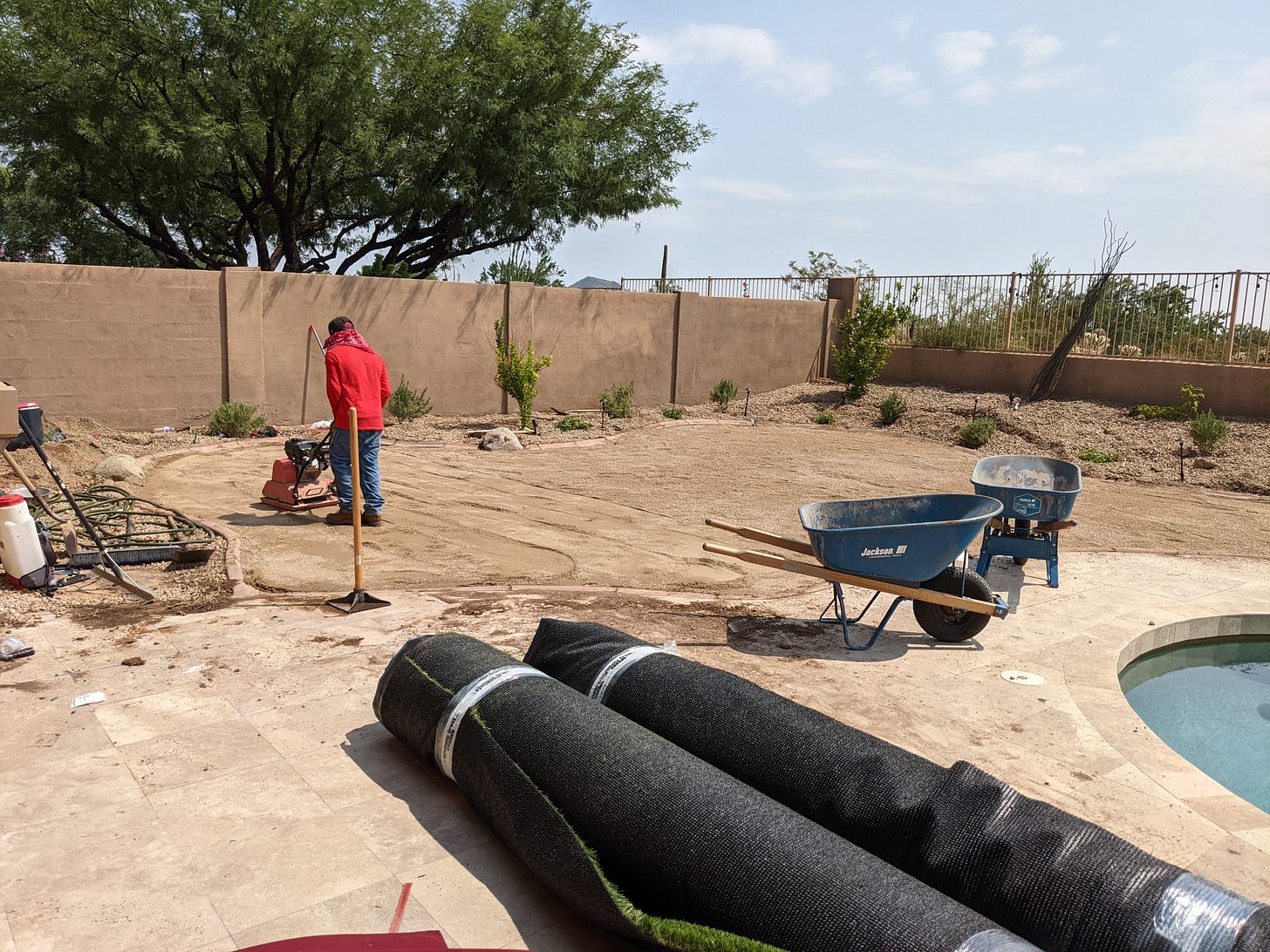













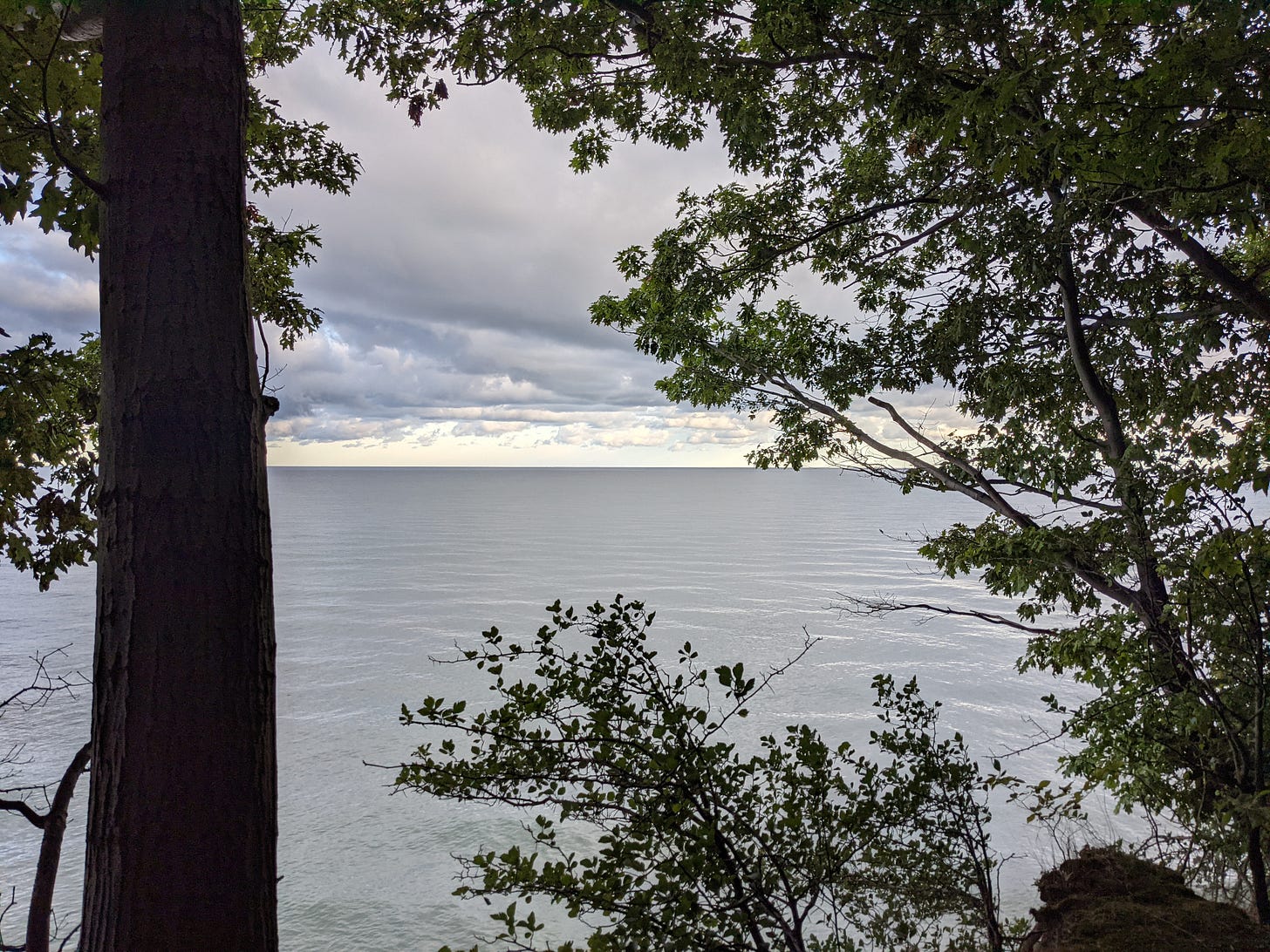




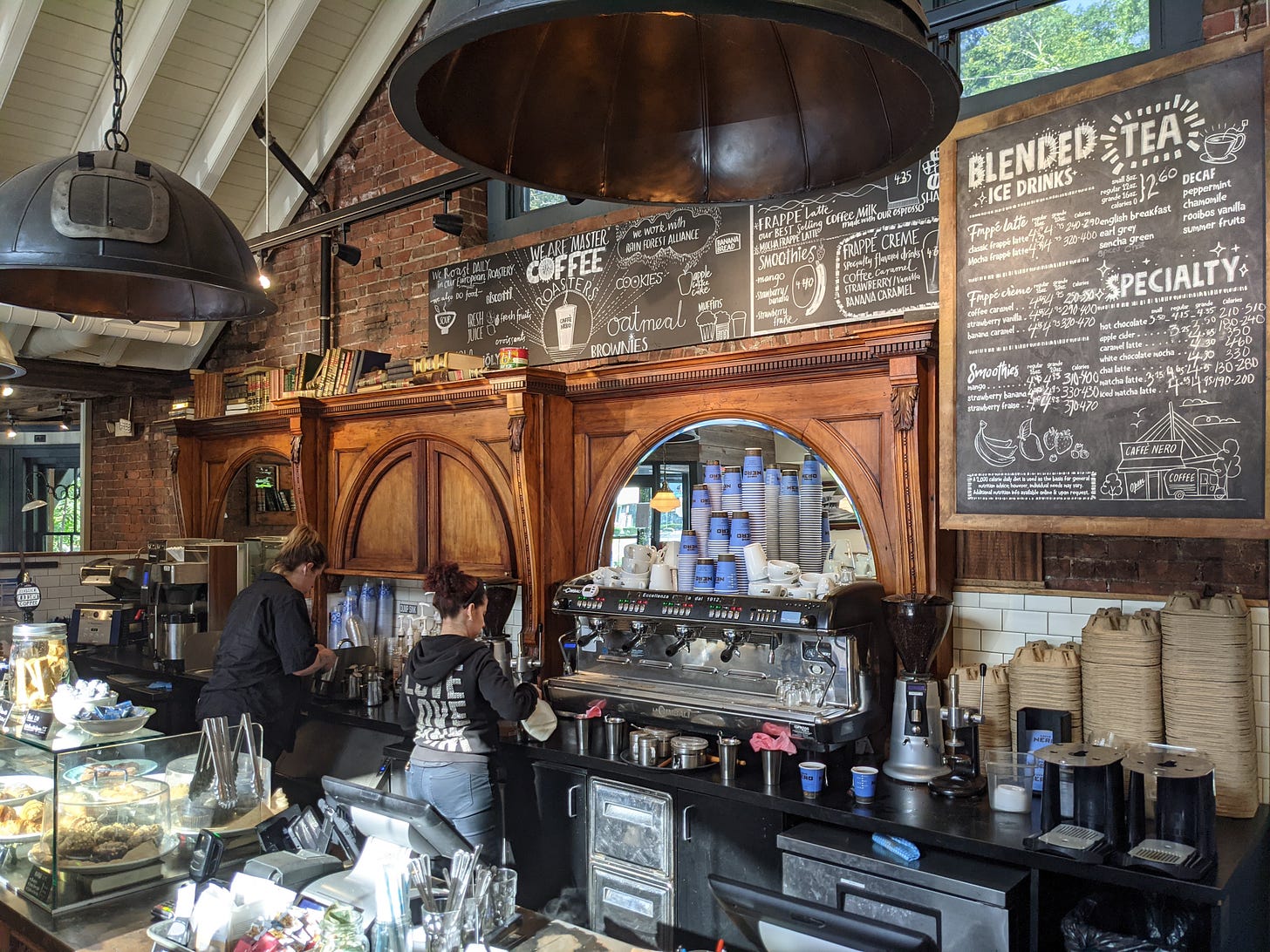



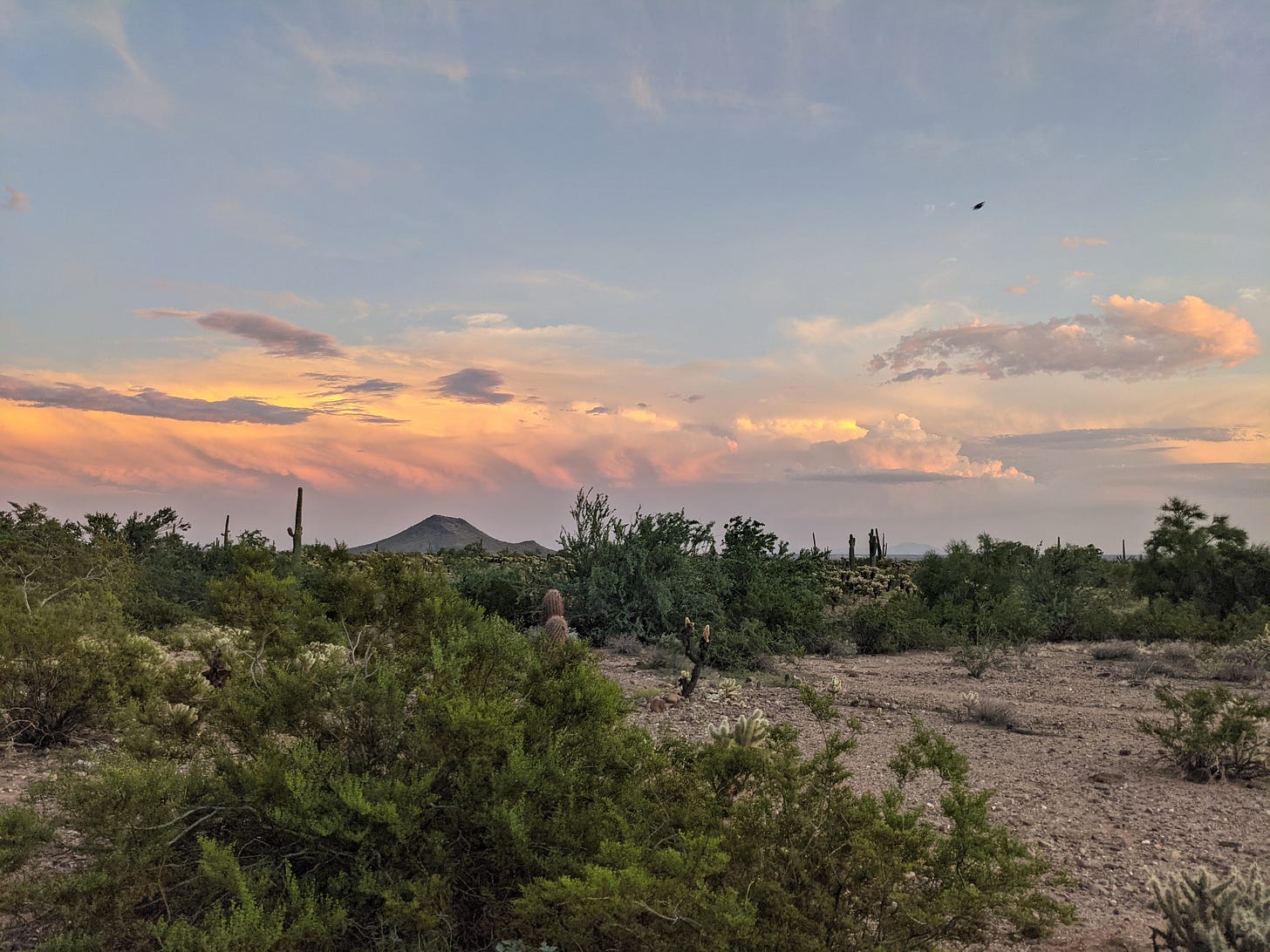
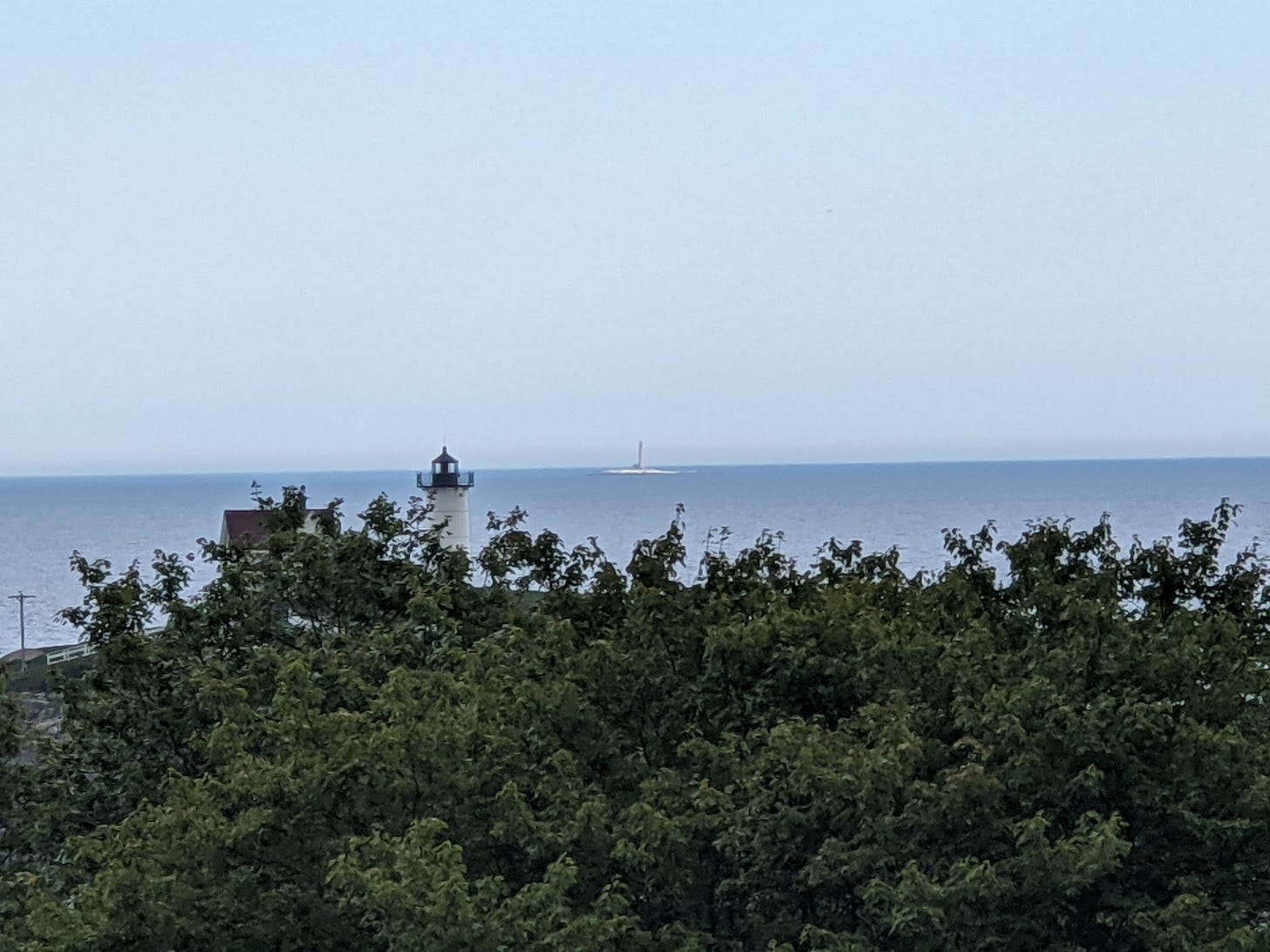

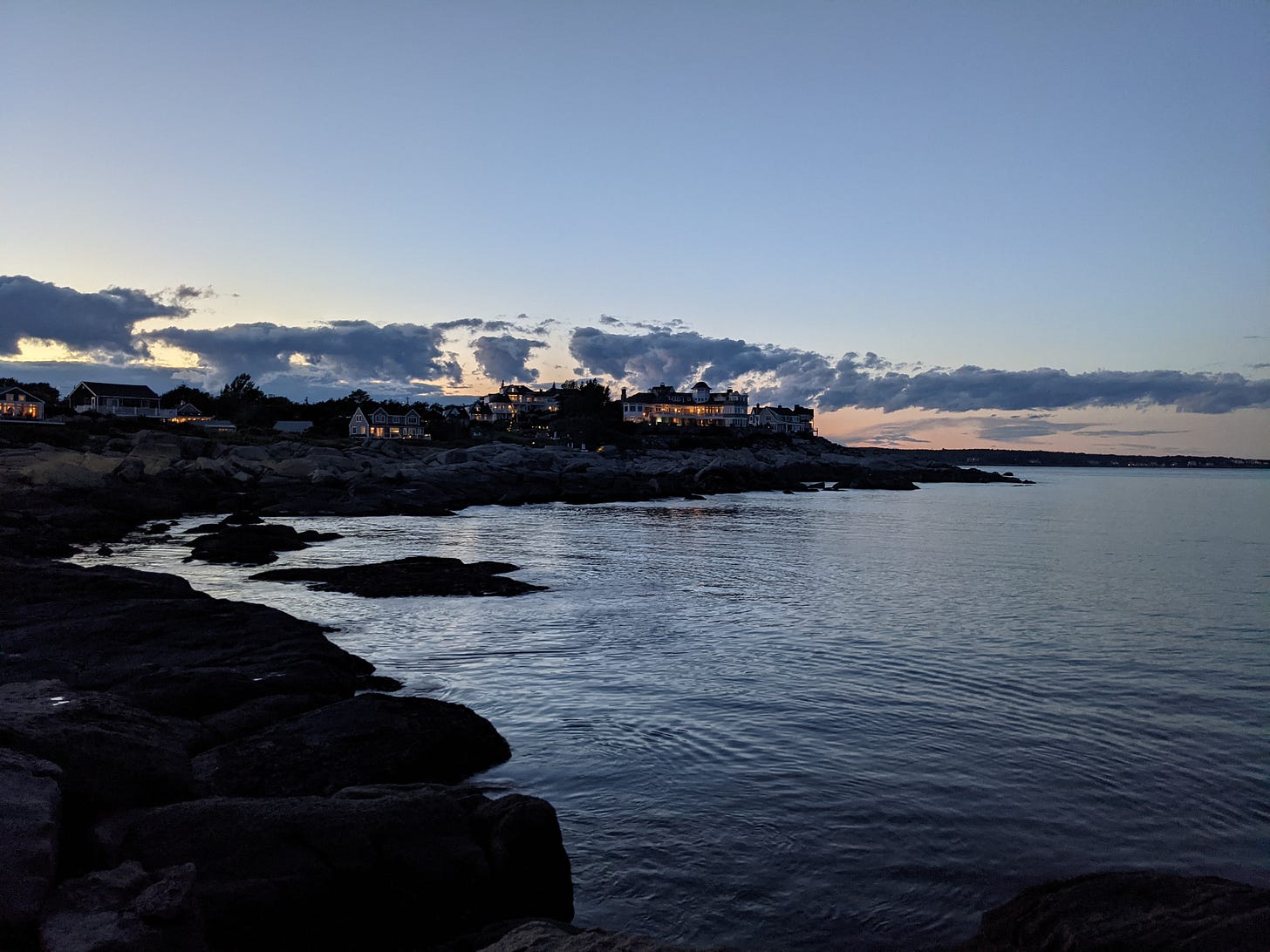
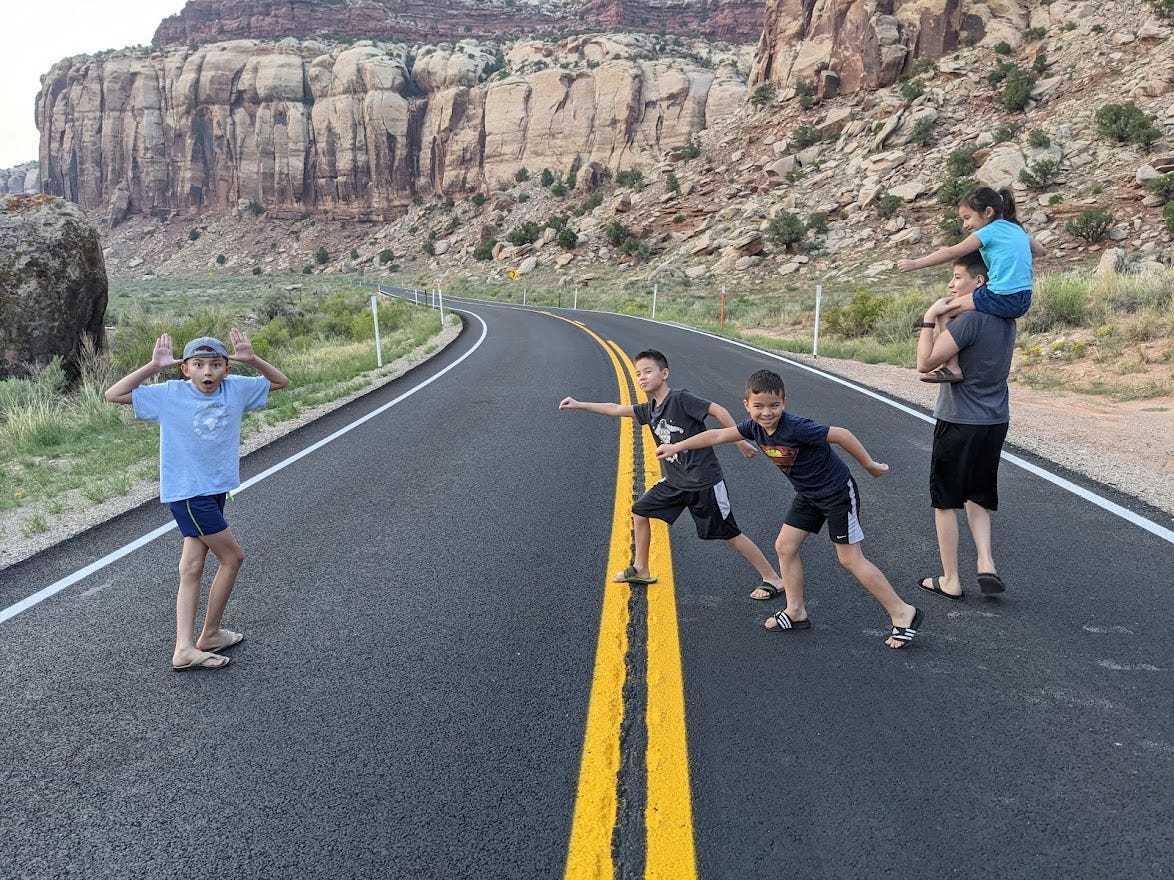

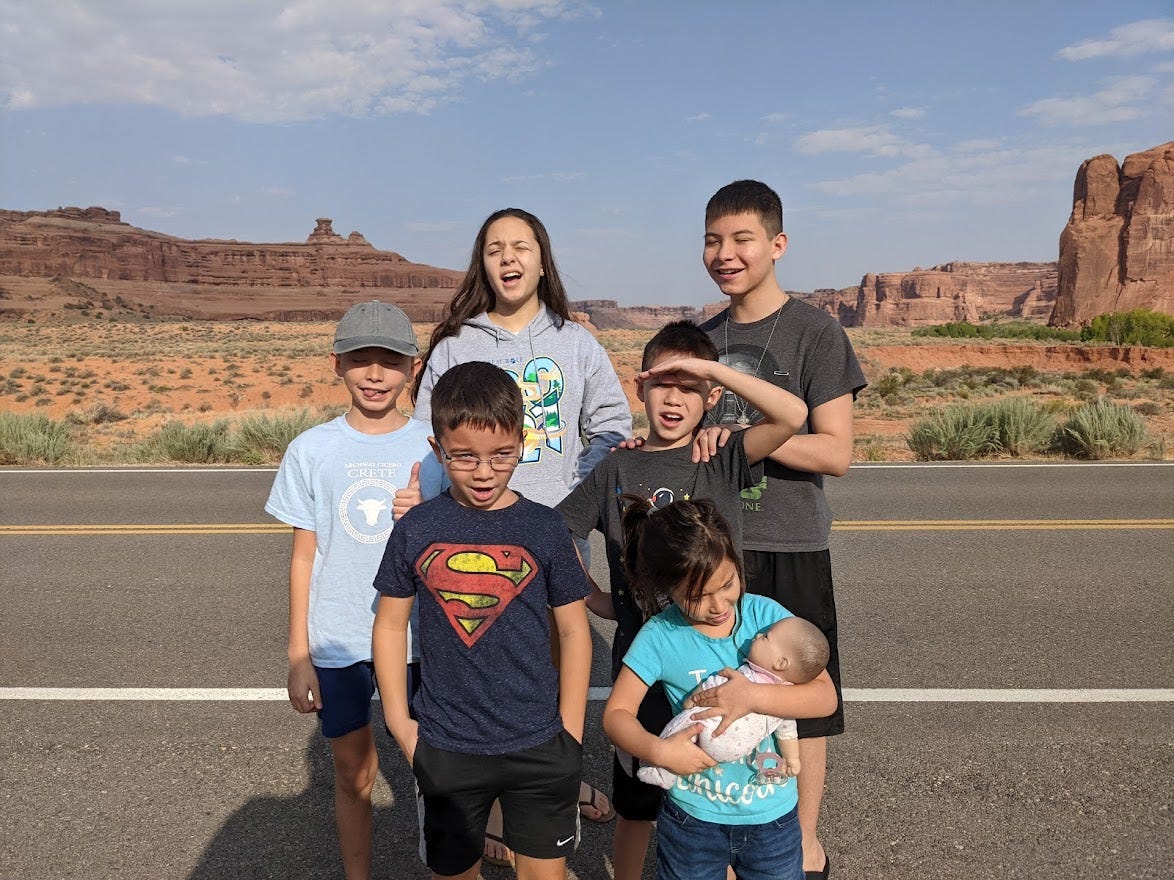
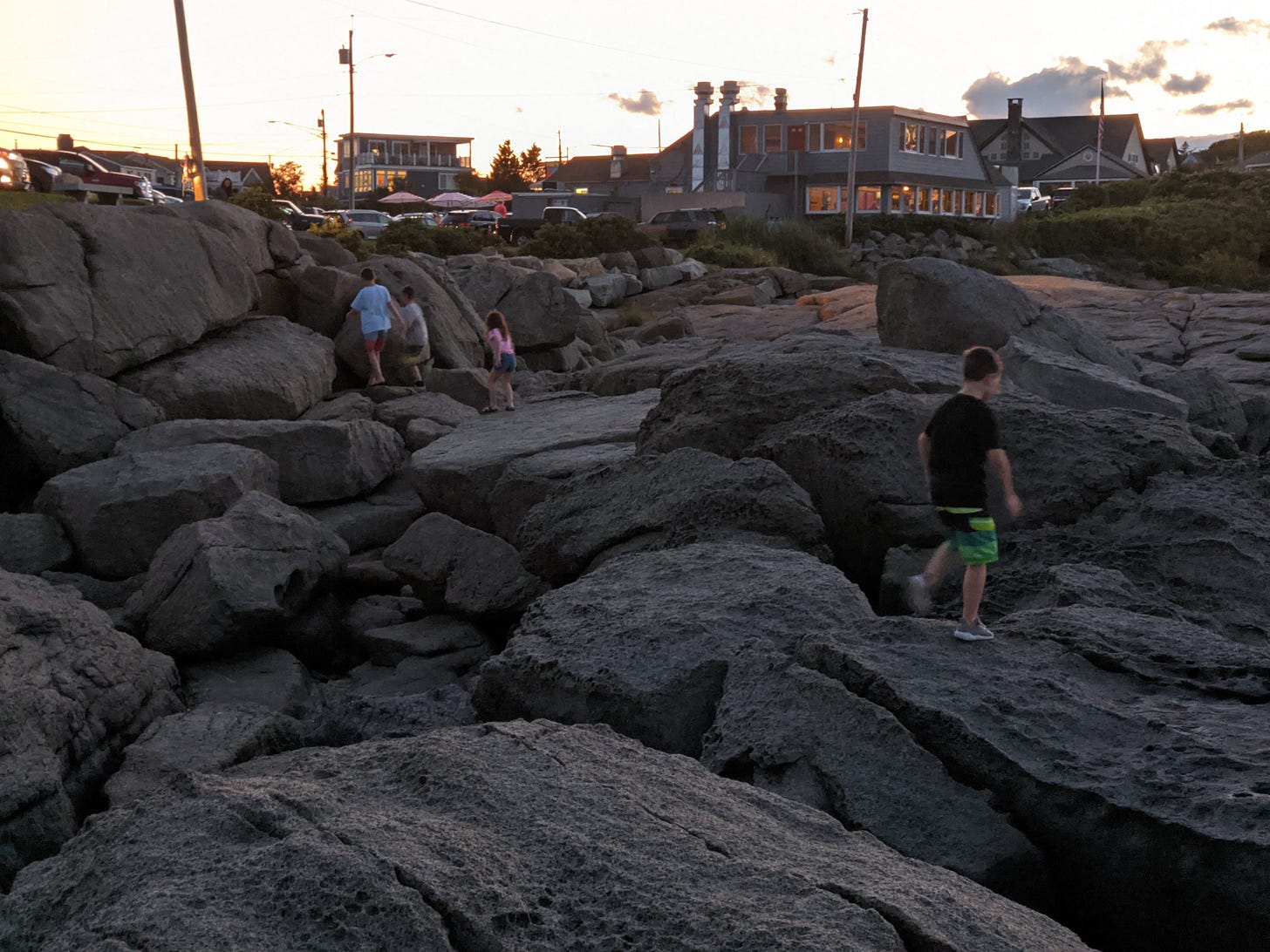





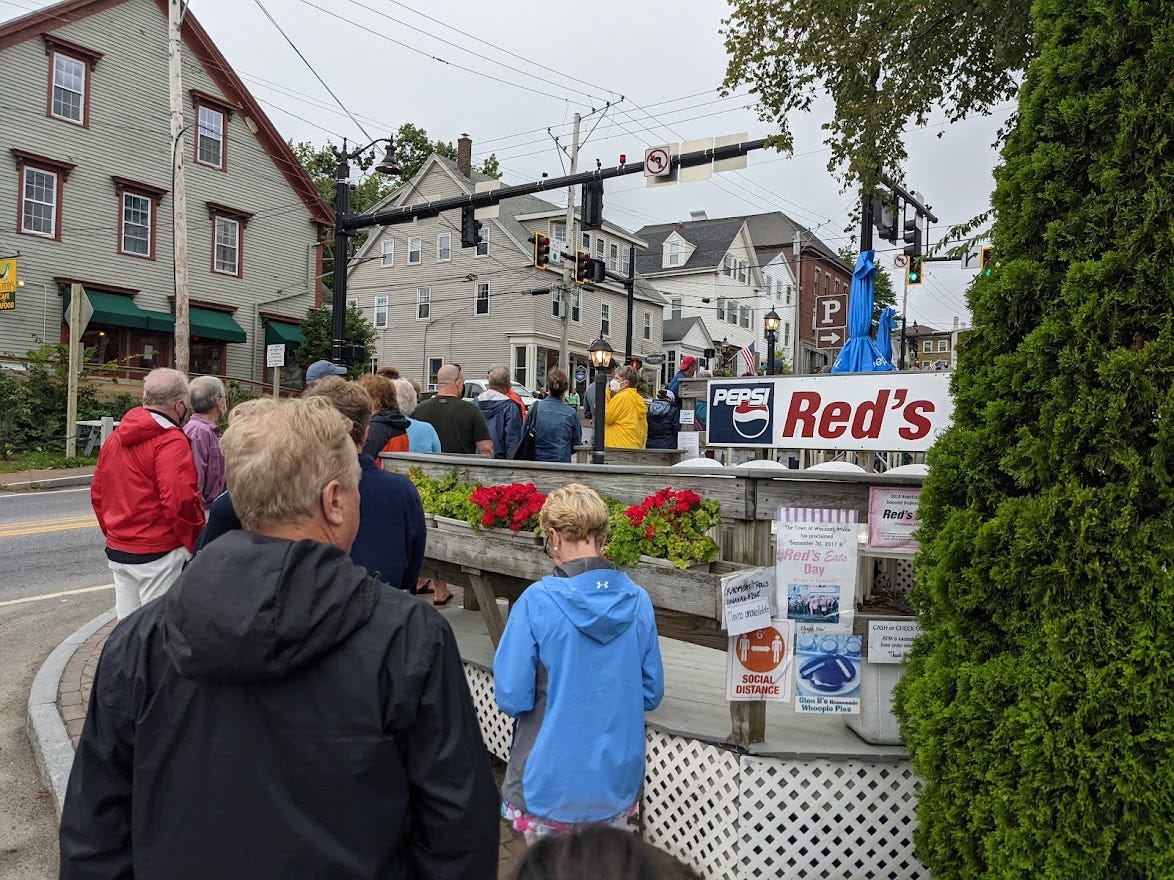




We're inching closer to our own move halfway across the country, although ours is due to the end of a very long military career for my husband.
Congratulations on just up and doing it.
Brother, I’m so proud of you. I’m so proud to know you.
I don’t know exactly how this story ends, except that it will be beautiful because you will be in it and you are brave, you have a heart filled with love and a ton of integrity.